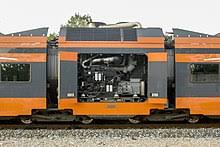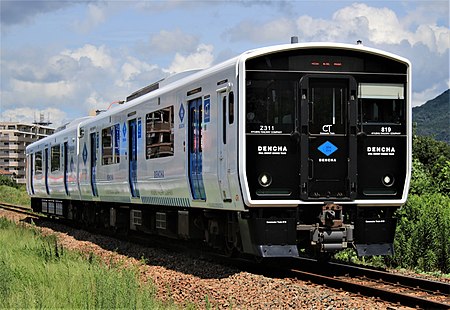SAPO
Now
Mark Barnes, in a YouTube video, explained he misses the Post Office simply because he loved those Posts (both Office and job). I liked that. Combine Post and Passenger Rail. amd make him the Minister. That way, he may just fix both things. Nobody else will. He is to be admired for taking on the Post Office. I understand that social letters have dwindled, but legal documents, especially given how the ANC likes to boer in die hof, have increased. Paying a courier a minimum of R100 to carry a 5 gram A4 page is semi-criminally insane. R150 for a SIM card the size of a fingernail is worse. SIM card deliveries have replaced letters. No wonder SAPO wants that market back. I, too, would like to return to paying R6-ish.
School Books
One of the other more notably stupid and corrupt distribution ventures I remember was around school textbooks. We had a perfectly good postal service delivering school books and distance learning material for a century, to farms and their schools in every tiny corner of SA, but no: the ANC government had a better way. They tried to establish a special entity to deliver schoolbooks, a pitiful attempt at re-inventing the postal wheel, and it failed dismally. In some places, it is still failing three decades on.
Treason Trial
Few people today know that for years, tens of thousands of Brit parishioners were stuffing British Pounds into envelopes and sending the cash to families in SA, writing letters to people they’d never, and would never, meet. These were families identified by SA parishioners as vulnerable because their breadwinners were in jail on political charges. IDAF, the programme started by Canon Collins, also channelled liberation funding for lawyers to defend those breadwinners, GBP 96 million sterling in all. That’s around R10 billion today, maybe not much when an Eskom knee guard costs R85k, but SA had only 6 million population when IDAF started out. The Treason Trial legal team was led by Bram Fischer and Sydney Kentridge. I was eleven years of age. I heard many adults saying they were certain Mandela would be hanged. It was close, but in the end, funded lawyers kept Nelson Mandela from the gallows. He was instead jailed for life. Bad as that was, and evil as they could be, Mandela survived to walk long and free.
One Hundred and Fifty Six
It is still staggering to ponder that the Treason Trial arrests numbered 156. Every one of those breadwinners’ families were supported during their imprisonment by cash arriving in letters from all over the world, but mostly from the British Isles. And it was not the only court case. In the end, families all over SA were being supported by banknotes arriving in the post. The apartheid government knew about all those British bank notes, but turned a blind eye, because they needed foreign currency.
The Public Good
Postal delivery is all about a basic degree of civilisation. It needed people to read, write, sort, walk, ride and drive. How many people think those are bad things to do? Post services and post banks are obviously good things: at the very least, they appear as innocent endeavours. Even with snail mail a thing of the past, SAPO under Mark Barnes was profitable. Someone turned his R5 billion profit to a R4 billion loss in a few years. The question is, who? It’s always Mnr Niemand. Since nobody is being arrested, we can reasonably assume the usual suspects. In my considerable working experience, workers have only slightly longer fingers. If you want the real klep-deal, look at bosses and politicians.
Mail and Rail
I am still irked when reading advertising copy about Shosholoza Meyl. The copy writer had done enough research to know the origins of Shosholoza, the song, but had no idea what to make of the word ‘Meyl’. The best that chump (definitely a man, my sister would say - no woman would write crap like this) could come up with was that ‘Meyl’ gave a warm colloquial sense.
Oh dear! What coke snoring troll came up with that journo no-no? Trains were named Meyl because they were mail trains. Meyltrein rolled off the tongue better than postrein. Trains carried the mail. More accurately, mostly passenger trains carried mail. There were also parcels trains. They took the form of a whole set of guards vans.
255 Km per Litre
Nothing remotely outdoes rail in terms of fossil fuel consumption. Since our power stations are mostly coal fired, this counts for electric locomotion too. Estimates vary, but using the unit “Passenger seat per gallon”, a car is rated at 30 mpg, a jetliner at about 65 mpg, and a train at 600 mpg. For people who hate oldie measures, those are 12, 27 and 255 km / litre. Rail can carry a given mass far cheaper than anything else, and we have known that for a century. Government’s primary function is to limit unwise excesses. Post and parcels are an unprofitable expense, and are funded by public tax money, so they should, as far as possible, be carried by the cheapest, least polluting means available.
Teksie Meyl
Now that they’ve all but killed main line passenger rail, what carries the post? Ask anyone you know to imagine the post being carried by teksie kombi, contracted to SAPO. S/he will giggle uncontrollably, nearly spilling a spoek en diesel, and say “That’s a good one, hey?” S/he will look at you askance, and quickly escape to the braai fire, hoping to find a lekker tjop. Now and again, s/he will wink through the blue boerewors smoke from across the lawn, with one of those conspiratorial knowing winks that mean “fellow inmate”.When, not If
SAPO is far outstripped by courier companies. We think nothing of paying a minimum of R100 for an envelope containing a single A4 page. Trouble will come when someone gets strict about emissions, and that is not “if”, it is “when”. At that point, courier vans will be dead cheap. It will be like the old Six Day War joke: “6000 pairs of Egyptian boots, going cheap”.
Pressure to get things off the roads, to avoid IC engines, will provide a great opportunity for engineers (not the kind that order AFRO 4000 locomotives) and designers to come up with something fit for purpose that could be exported to other countries. Most of Africa has either Cape Gauge or Metre Gauge: wagons are identical for both, so only the bogey undercarriage differs. We already make train sets, and we have made locomotives for a century. It’s not too much of a stretch to make light train sets for use on light axle load branch lines.
Small Rail is Beautiful
Starting slow, I suggest reviving as many branch lines as we can, running three-coach train-sets, These could be DMU (Diesel Multiple Units) for non-electrified routes, with two coaches, pointing in opposing directions, separated by a power car in the middle, with a driver’s cab on each end.
Or, if solar power charging equipment is installed at some stations, they could be battery-electric. Japan runs them on Cape Gauge.

They could run weekly, to start with, targeting backpacker tourism with bicycle racks, & a secure mail compartment in one coach, and with climate-control, a self-catering family-friendly coach, with the middle coach with sitter accommodation, ramps for wheelchairs. Try going on Shosholoza Meyl in a wheelchair, or even without one. It’s hard enough to find if there wil evenl be a train, let alone how long it will take. Commuter trains, maybe. Main line? As Hugh Masekela would say “Ain’t gonna happen”.
Two Day Mail Anywhere
Staying with the system of ‘mail by rail’ though, dwindling mail is an opportunity, a good one, to do things better this time around. There is no need to fall for the old trap of “we have always done it this way”, because it isn’t even being done. We know, from even as far back as the 1950s, that mail can reach anywhere in the country within two working days. Would I, living in a rural dorp, complain about the mail At R6.30 per letter or SIM card, arriving only on Mondays & Thursdays? If it were scheduled and reliable, I would say we are back in the world again.